 Your new post is loading...
 Your new post is loading...

|
Scooped by
Gust MEES
|
Intelligence collective : définition
L'intelligence collective représente la capacité intellectuelle d'une communauté d'individus qui est issue des interactions entre ses membres, permettant d'effectuer des tâches complexes grâce aux synergies réalisées. L'intelligence collective suppose, pour la communauté, le partage de l'information, le respect de règles communes, de nombreuses relations sociales, et un bénéfice à collaborer pour chacun des membres.
L'intelligence collective en entreprise
Dans le monde du travail, l'intelligence collective est une réalité quotidienne puisque le principe même de l'entreprise est de faire travailler ensemble des membres aux profils divers (salariés et partenaires extérieurs) dans un objectif commun. Elle a un impact direct sur la réussite d'un projet et la performance globale de l'entreprise. Bien souvent, les entreprises résonnent donc en intelligence collective sans le savoir...
Learn more / En savoir plus / Mehr erfahren: https://www.scoop.it/t/21st-century-learning-and-teaching/?&tag=Intelligence+collective https://gustmees.wordpress.com/2018/01/26/whats-the-secret-of-success-while-innovating/

|
Scooped by
Gust MEES
|

|
Scooped by
Gust MEES
|
Edu-Action – Bildungsgipfel Rhein-Neckar
"Die Zeit der Einzelkämpfer ist vorbei." Wir sollen nicht auf den nächsten Einstein warten denn kollektive Intelligenz ist besser als individuelle Intelligenz: IQ vs WeQ (Gerald Hürther, Prof. für Gehirnforschung)
Digitale Transformation: Weg vom “local Hero” und hochheben der einzelnen Initiativen auf institutionelle Ebene. (Jörg Dräger, Bertelsmann Stiftung)
Früher musste man argumentieren für das "Warum", jetzt ist die Frage "Wie. (Jörg Dräger, Bertelsmann Stiftung)
[Gegen Transversalität] Fächer sind notwendig, weil wir Experten braucht die wichtige Themen wie „Europe“ oder „Informatik“ von einem Experten vermittelt werden müssen. Die Frage ist, wie weit man in jedem Fach gehen muss. (Christian Spanagel, Prof. für Mediendidaktik)
Informatikunterricht muss konsequent in Schulen eingeführt werden: Programmierung, Robotik, Datenbanken, usw. Learn more / En savoir plus / Mehr erfahren: http://www.scoop.it/t/21st-century-learning-and-teaching/?tag=collective+intelligence https://gustmees.wordpress.com/2015/07/19/learning-path-for-professional-21st-century-learning-by-ict-practice/

|
Scooped by
Gust MEES
|

|
Scooped by
Gust MEES
|
For latest news and events see: MIT Connection Science:
http://connection.mit.edu/
How can we create organizations and governments that are cooperative, productive, and creative? These are the questions of social physics, and they are especially important right now, because of global competition, environmental challenges, and government failure.
The engine that drives social physics is big data: the newly ubiquitous digital data that is becoming available about all aspects of human life. By using these data to build a predictive, computational theory of human behavior we can hope to engineer better social systems.
Learn more / En savoir plus / Mehr erfahren:
http://www.scoop.it/t/21st-century-learning-and-teaching/?tag=Social+Physics

|
Scooped by
Gust MEES
|
Users and customers are becoming increasingly important sources of knowledge due to changes ininnovation policies and paradigms. Simultaneously innovation is becoming more of a networking activity. New methods are needed for processing information and ideas coming from multiple sources more effectively.
For example, the whole personnel of an organisation are seen as a great potential for innovation. The recent development of communication technologies such as the Internet has increased interest towards the multidisciplinary field of collective intelligence. To investigate the possibilities of collective intelligence, the nest-site selection process of honey bees was used asmodel for an idea evaluation tool, a prototype of which was then tested in a case organisation.
The results were promising; the prototype was able to evaluate ideas effectively, and it was highly accepted in the organisation.

|
Scooped by
Gust MEES
|
Cosmopolitanism is the ideology that all human ethnic groups belong to a single community based on a shared morality. A person who adheres to the idea of cosmopolitanism in any of its forms is called a cosmopolitan or cosmopolite. The word derives from Greek κοσμοπολίτης, cosmopolites, i.e.

|
Scooped by
Gust MEES
|
Related articles, my curation about ALL present and future "Collective Intelligence" in English, French and German...
I’m thrilled to have been chosen to write the next book for the World Innovation Summit for Education (WISE). To be released in 2014 this new publication will focus on the link between technology and education by investigating how the connected society is transforming learning.
The rapid spread of digital platforms, increasing connectivity, the potential for massive online collaboration and “networked intelligence” are not only opening new doors to lifelong learning but breaking down generational, geographic and disciplinary boundaries.
Via Ana Cristina Pratas
The MIT Center for Collective Intelligence brings together faculty from across MIT to conduct research on how new communications technologies are changing they way people work together.
Via Dr. Susan Bainbridge, Gust MEES

|
Scooped by
Gust MEES
|
As all the people and computers on our planet get more and more closely connected, it's becoming increasingly useful to think of all the people and computers on the planet as a kind of global brain. THOMAS W. MALONE is the Patrick J. McGovern Professor of Management at the MIT Sloan School of Management and the founding director of the MIT Center for Collective Intelligence. He was also the founding director of the MIT Center for Coordination Science and one of the two founding co-directors of the MIT Initiative on "Inventing the Organizations of the 21st Century". Pretty much everything I'm doing now falls under the broad umbrella that I'd call collective intelligence. What does collective intelligence mean? It's important to realize that intelligence is not just something that happens inside individual brains. It also arises with groups of individuals. In fact, I'd define collective intelligence as groups of individuals acting collectively in ways that seem intelligent. By that definition, of course, collective intelligence has been around for a very long time. Families, companies, countries, and armies: those are all examples of groups of people working together in ways that at least sometimes seem intelligent. Read more, very interesting...: http://edge.org/conversation/collective-intelligence
|

|
Scooped by
Gust MEES
|
What's the secret of success while innovating? I hear you screaming already: I would like to be innovative, I even have some ideas BUT I am fearing about WHAT OTHERS would say and think about!! To be honest, NEVER look about WHAT OTHERS would say, innovation is something NEW and the new will… Learn more / En savoir plus / Mehr erfahren: https://gustmees.wordpress.com

|
Scooped by
Gust MEES
|
USC Viterbi School of Engineering researchers believe that some of the most complex technologies of our times, such as robotics or cognitive computing, can learn a thing or two from swarms of ants, pigeons and bacteria.
For starters, let’s look at ants. Drop some sugar on the floor and wait. Sooner or later, one or two straggling ants scoping the area will stumble upon it. What happens next is perhaps one of the most elaborate orchestrations of organized teamwork in nature. Learn more / En savoir plus / Mehr erfahren: http://www.scoop.it/t/21st-century-learning-and-teaching/?tag=collective+intelligence

|
Scooped by
Gust MEES
|
Weitere Lektüre: – GDI-Report «Die Zukunft der vernetzten Gesellschaft»: http://www.gdi.ch/de/studien – Blog von Dirk Helbing: futurict.blogspot.ch – Nervousnet der ETH: http://www.nervous.ethz.ch
«In den meisten europäischen Ländern werden 50 Prozent der heutigen Arbeitsplätze verloren gehen» «Die Vorstellung, man könnte ein globales System von einer bestimmten Komplexität noch zentral steuern, ist einfach falsch» «Das Internet der Dinge und die damit verknüpfte Echtzeitinformation werden es jetzt ermöglichen, das Prinzip der Selbstorganisation auch in der Wirtschaft und Gesellschaft nutzbringend einzusetzen» «Europa befand sich bisher im digitalen Dornröschenschlaf»
Learn more / En savoir plus / Mehr erfahren: http://www.scoop.it/t/21st-century-learning-and-teaching/?tag=collective+intelligence

|
Scooped by
Gust MEES
|

|
Scooped by
Gust MEES
|
Okay, collective intelligence is deeply engrained in animals; the collective intelligence of bees and ants is well-known. You also have collective intelligence in social mammals. They signal each other about danger and where food is. But in the case of humans, our collective intelligence is much more powerful because we have language, we use technology, and we have complex social institutions. It’s a higher level of collective intelligence, and it’s fundamentally based on symbolic manipulation.
In human history, there is an increase in collective intelligence based on media that increase our ability to manipulate symbols. Currently, we are at the state of algorithmic symbol manipulation, but it’s just the beginning of this new era. My work is devoted to the improvement of collective intelligence by exploiting this new medium.
There are a lot of misunderstandings about collective intelligence. The first is that we have to create it; we don’t have to, it already exists. The second idea that should be avoided is that collective intelligence is group think. It’s just the opposite of group think. It is the integration of variety and singularities in the philosophical sense, not the Kurzweilian. It’s not uniform, it’s thinking together.
Learn more: - http://www.scoop.it/t/21st-century-learning-and-teaching/?tag=collective+intelligence

|
Scooped by
Gust MEES
|
EDUC 6238 Université de Moncton, Moncton, N.-B. Canada
«L’idée est de créer une communauté de talents, au service de l’innovation» Parce qu’être créatif n’est plus réservé aux artistes et autres scientifiques dans l’intimité d’un atelier ou d’un laboratoire. Parce que l’économie créative est devenue un véritable facteur de développement pour les villes et les entreprises. Parce que Montréal et Barcelone sont reconnues comme des métropoles créatives.
Trois raisons parmi bien d’autres de participer à l’École d’été en management de la création, organisée par HEC et l’Université de Barcelone.
Via Thierry Belleguic

|
Scooped by
Gust MEES
|
At long last, sanity and clarity may be coming to the Internet. Scoop.it exemplifies a trend that attempts to address the growing need to get the right information to the right people who have specific interests.
"Let’s focus on the resulting element — the “collective intelligence”. Think about it as billions of human brains working using future super computers as a platform. Massachusetts Institute of Technology (MIT) professor Srini Devadas described “collective intelligence” as consisting of two pillars: cloud computing and crowd computing. Cloud computing is using the Internet as a platform and making access to information available to everyone. Crowd computing, according to him, involves the analysis of information into “collective intelligence” far beyond what we have today."
Via Howard Rheingold, Jack Patterson
For my book in progress on social media literacies, I talked to Pierre Lévy about his specialty, collective intelligence.
Via Ana Cristina Pratas
|



 Your new post is loading...
Your new post is loading...



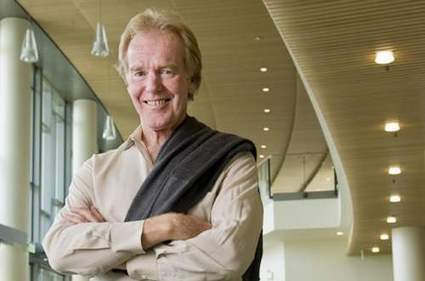
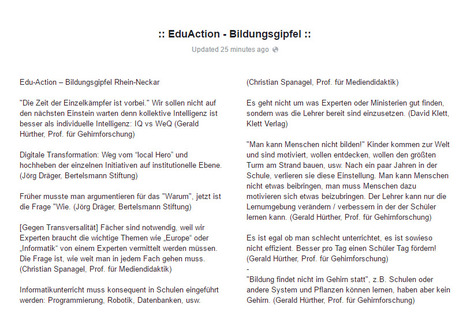
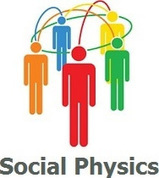





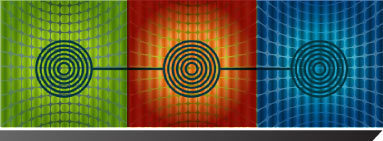



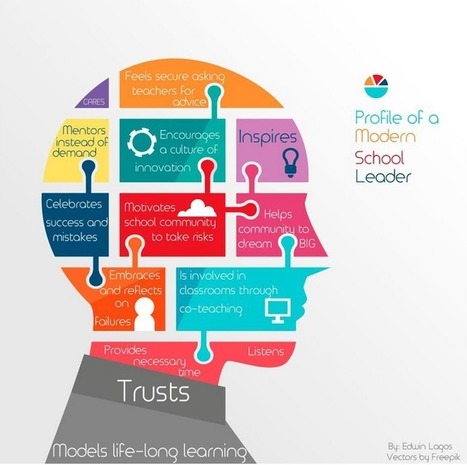
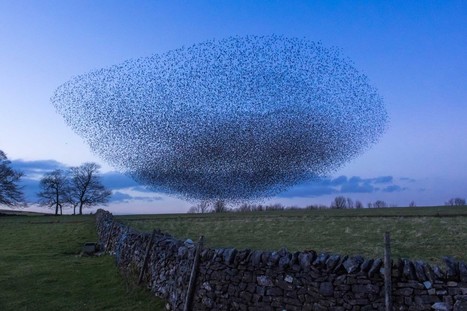


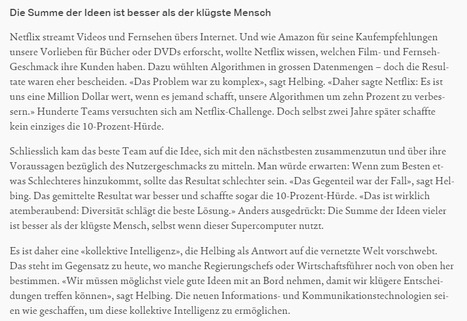


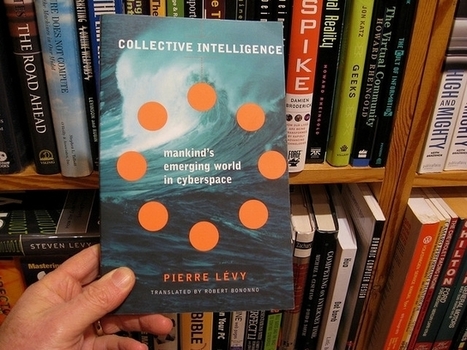
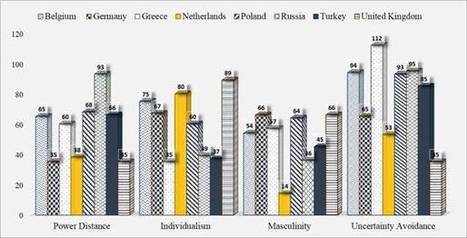

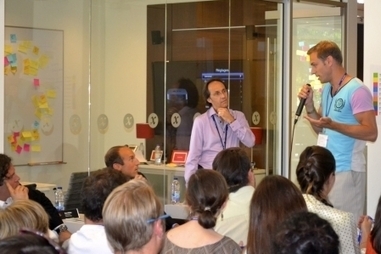



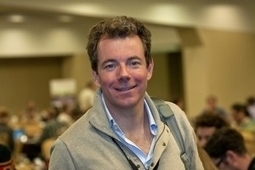
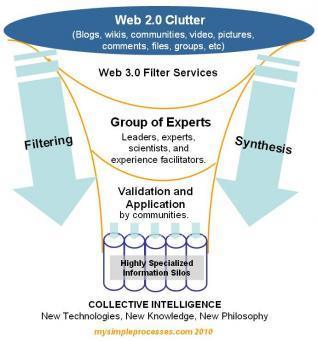






Intelligence collective : définition
L'intelligence collective représente la capacité intellectuelle d'une communauté d'individus qui est issue des interactions entre ses membres, permettant d'effectuer des tâches complexes grâce aux synergies réalisées. L'intelligence collective suppose, pour la communauté, le partage de l'information, le respect de règles communes, de nombreuses relations sociales, et un bénéfice à collaborer pour chacun des membres.
L'intelligence collective en entreprise
Dans le monde du travail, l'intelligence collective est une réalité quotidienne puisque le principe même de l'entreprise est de faire travailler ensemble des membres aux profils divers (salariés et partenaires extérieurs) dans un objectif commun. Elle a un impact direct sur la réussite d'un projet et la performance globale de l'entreprise. Bien souvent, les entreprises résonnent donc en intelligence collective sans le savoir...
Learn more / En savoir plus / Mehr erfahren:
https://www.scoop.it/t/21st-century-learning-and-teaching/?&tag=Intelligence+collective
https://gustmees.wordpress.com/2018/01/26/whats-the-secret-of-success-while-innovating/